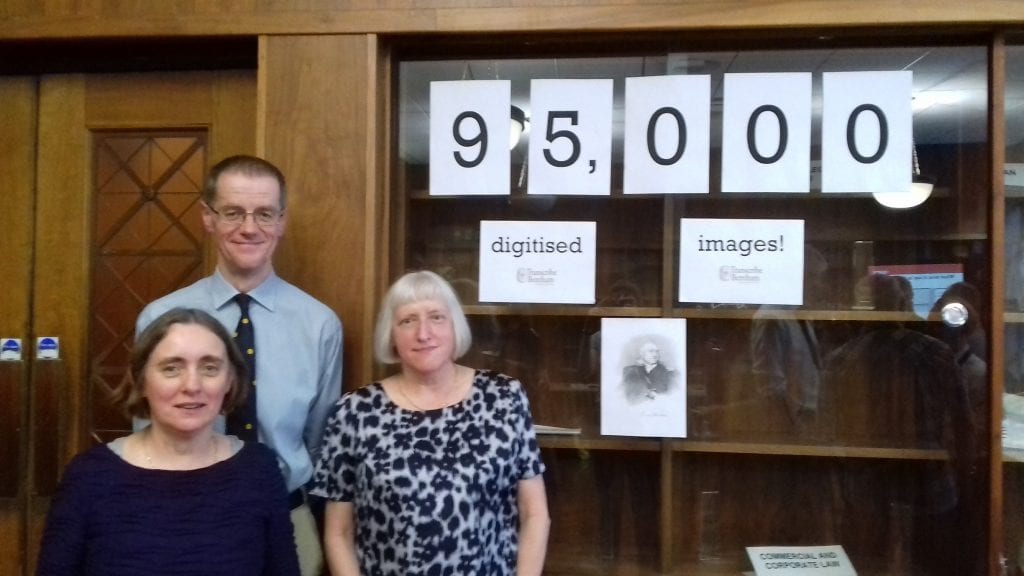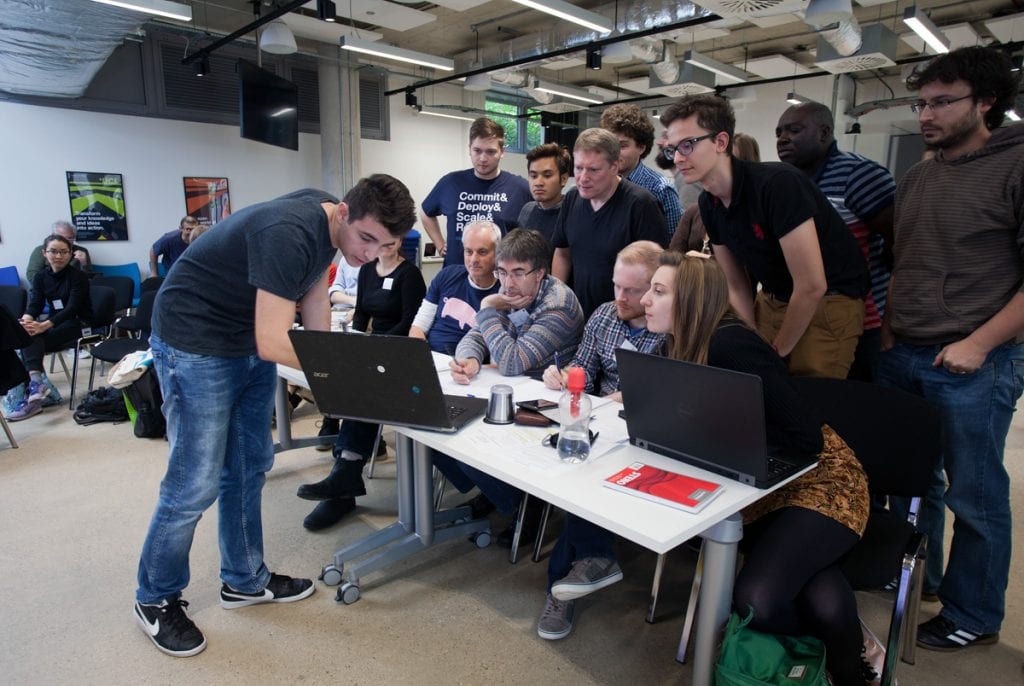Project Update – So long to Transcribe Bentham
By uczwlse, on 23 April 2019
Hello! I’m checking in with a final blog post before I move on to my new job at The National Archives. My last day in the office will be 26th April. If you need any assistance after I’ve left, please contact transcribe.bentham@ucl.ac.uk and Bentham Project staff will pick up your message.
Working at the Bentham Project has been an incredibly rewarding experience and one which has certainly caused me more pleasure than pain over the past four years. I hope that in my own small way I have contributed to an improved understanding of Bentham’s life and philosophy.
I knew that transcription would be a large part of my job when I was asked to transcribe a Bentham manuscript during my job interview! Hopefully my eye for Bentham’s handwriting has improved somewhat since then but I still feel a sense of trepidation when I encounter a page from the 1830s (when Bentham’s handwriting was at its worst!).
After initially supporting my Bentham Project colleagues with the editing and researching of Bentham’s papers, I became the coordinator of the Transcribe Bentham crowdsourcing initiative in January 2016. It has been a real privilege to work alongside such a dedicated group of volunteers, many of whom have been with the project for several years. They have blossomed into extraordinarily skilled transcribers who bravely tackle Bentham’s writings, which can at times be chaotic and convoluted. Our volunteers play an invaluable role in helping the Bentham Project to complete the mammoth task of transcribing thousands upon thousands of pages left behind by Bentham. We endeavour to ensure that our volunteers feel part of our community, sending them a monthly newsletter and encouraging them to take part in events like the Bentham Hackathon. I was delighted to be able to support volunteers to transcribe 20,000 pages of Bentham’s writings, an important milestone which was reached in April 2018. Our transcribers add to this total daily and I will enjoy watching their progress continue from afar. I would like to give huge thanks to all of our volunteers for their patience, hard work and company over the past few years. They are living proof that amazing things can be achieved through collaboration between researchers and members of the public.

Transcribe Bentham volunteers Annette Brindle, Simon Croft and Gill Hague celebrating the complete digitisation of Bentham’s papers in June 2018.
I’ve also had the chance to experiment with new ways of transcribing documents thanks to the Bentham Project’s role in the EU-funded READ project. Handwritten Text Recognition (HTR) technology is progressing rapidly and computers are getting better at tackling difficult manuscripts like those written by Bentham. As reported here on the blog, we’re now able to use the Transkribus platform to recognise Bentham’s hand with an average Character Error Rate of just 9% (meaning that 91% of characters are transcribed correctly by the machine). We also have a Keyword Spotting interface where users can work with HTR to search the entirety of the Bentham papers. I’ve been lucky enough to present our results internationally, from the Nordic Countries to the Balkans, and have taught hundreds of academics and archivists in regular Transkribus workshops. I’ve enjoyed spreading the word about Transkribus far and wide through writing the READ project’s blog, newsletter and social media and organising the annual Transkribus User Conference. I have high hopes for the future of HTR and look forward to seeing volunteer skills and machine recognition integrated in a future version of Transcribe Bentham.
Of course I need to thank all of my colleagues, in the Bentham Project, in UCL Laws and in the READ project, for the inspiration, support and fun. I have learnt a lot about Bentham, historical research, archives, scholarly editing, digital humanities, public engagement, crowdsourcing and much more, which will all stand me in good stead for my new role at The National Archives.
 Close
Close


